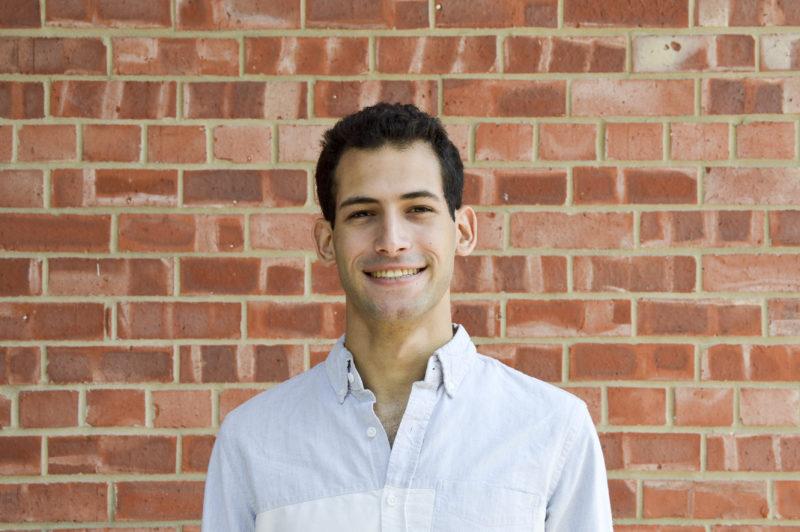American society is becoming non-religious at an ever-increasing rate. A 2017 study from the University of Kentucky estimated that as many as 26 percent of Americans are atheists and Pew polling has shown a rapid decline in religious affiliation, particularly among younger Americans. This decline of faith raises difficult questions about how increasingly secular Americans will live and structure their lives without the guidance of religious dictates.
Growing up Jewish, I’ve seen these questions play out in the Jewish community. According to Pew, 62 percent of American Jews say being Jewish is primarily about ancestry or culture, while only 15 percent say it is about religion (23 percent say both). Jewish synagogues, summer camps and youth organizations have continually diluted the faith aspect of Jewish identity. Theological study generally extends up to the Bar or Bat Mitzvah and is afterwards forgotten. Hebrew is taught only to the point of phonetic reading ability and basic comprehension.
What, then, does it mean to be Jewish without knowledge of theology or the ability to understand Hebrew prayers? What sense does it make to marry Jewish, keep kosher or celebrate Hannukah if one has no special interest in the faith that actually makes Judaism a religion? Many young Jews ignore such questions and simply stick with the traditions they were raised with out of a sense of familial obligation and nostalgia for youthful experiences.
To me, as an atheist, that approach is incoherent, for secular Jews and non-Jews alike. Surely it is a contradiction to perpetuate the spiritual traditions of any religion when one knows little about its true tenets and doesn’t think its supernatural claims reflect reality.
Luckily, non-religious frameworks exist for those trying to live a good life. The works of philosophers like Bertrand Russell and Peter Singer describe rational morality and practical ethics, using secular reasoning to determine how we ought to act and what we ought to value without defaulting to divine authority.
However, though such rational frameworks work well as broad prescriptions for life, they are lacking in the day-to-day. For that, a secular society shouldn’t be too quick to dismiss religious traditions, which have been refined over millennia of human experience and would not have been adopted so widely without some element of practical, daily utility.
Indeed, Penn Fraser Jillette of the magician duo Penn & Teller, an outspoken atheist, has discussed how he finds a secular version of prayer valuable. Every night he reflects upon his actions throughout the day and considers how he could have been better. In this sense he prays to the ideal version of himself, as he would be without flaws. This isn’t so different from praying to God, Jesus or other divine paragons of perfection.
In addition to a means of personal reflection, I think that secular modifications of certain modes of prayer also offer specific utility in the modern world, as prayer did in ancient times. The ancient world was a mysterious place where weather patterns and human biology were barely understood. Prayer was a means of gaining control over this mysterious world by propitiating the all-powerful gods that controlled it. Nowadays, scientific inquiry has lifted the veil of mystery from the physical world but the vast complexity of modern society is, if anything, more mysterious to the average person today than a hurricane was to an ancient villager. It’s simply impossible for any individual to have an intimate understanding of all the private, governmental and international systems of production, transportation and service that sustain modern society. Many don’t even attempt to keep this hidden web of systems in mind and are surprised when this web fails, such as during national disasters or economic downturns.
Specific practices of prayer can help with this. I draw here from my Jewish heritage, but I’m certain there are traditions of other religions that can be equally remastered. Consider the Modeh Ani, the Jewish morning prayer, a one-sentence prayer of thanks to God for restoring the soul at the moment of waking. From a secular perspective, there is great value in actively appreciating the ability to wake up every morning able to enjoy life. More than that, we should take the time to appreciate that we have not woken up, like those in Syria, to the sound of barrel bombs, or, like those in Yemen, to the affliction of cholera, or, like the Rohingya in Myanmar, to government soldiers shooting one’s neighbors and burning one’s village. In the process of appreciating our good fortune to not suffer these horrors, we can appreciate, at the start of our day, the social, judicial and military systems that prevent such horrors from occurring here, and how those systems still fail many citizens.
Another useful practice is the saying of a blessing or prayer before a meal, common to the Jewish, Christian, Hindu and Muslim traditions (and likely more). Gratitude for sustenance is an excellent tradition. However, instead of thanking God, consider the workers, many of them undocumented immigrants, who put back-breaking labor into picking fruits and vegetables. Consider the scientific advancements that have created hardier strains of plants, healthier animals and the ability to transport food without spoilage over great distances. Consider the regulations which ensure food is toxin-free. Consider, if one consumes meat or animal products (as I do), the suffering that animal may have endured so that you could savor the products derived from it.
This method of secular prayer can be generalized to all aspects of life. Whenever you buy new shoes, unbox a new smartphone, ace a test or start a relationship, take a moment to pray to the labor of individuals and the intricacy of systems that enable the great bounty of modern life.






